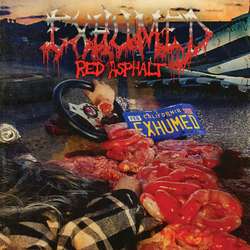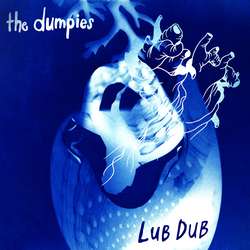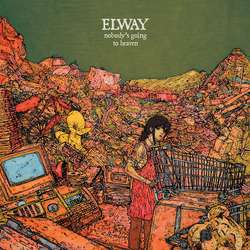In 2001, Nas released Stillmatic, a direct play on his first album Illmatic, and an indicator that he was still on top of the rap world. The album's single "Got Ur Self a Gun" featured Nas reminiscing on his previous efforts, stating, "My first album had no famous guest appearances. The outcome? I'm crowned the best lyricist." Stillmatic had no famous guest appearances, and Nas was still one of the best lyricists in rap. The significance? It's not necessary to make an album with big names to sell records, and raw talent is more powerful than a cast of hitmakers. Enter Wyclef Jean.
After releasing the incredibly successful The Score with The Fugees, Wyclef Jean began his solo career with 1997's The Carnival. While Lauryn Hill and The Bee Gees made appearances, the album was distinctly Jean's work, and arguably one of the best and dynamic works hip-hop has seen. While Jean went on with his solo career, The Carnival remained his best work, and the album cemented Jean as a top-notch performer and producer alike. Now, ten years since the release of The Carnival, Wyclef has come out with the sequel, subtitled Memoirs of an Immigrant. While significantly shorter than it's previous installment, Jean also ditched the lesser know guest collaborators for some of the biggest name in rap and hip-hop, and for that matter the biggest names in music. Some of them, Paul Simon and Norah Jones in particular, are outstanding additions. Others, such as Lil' Wayne and T.I., are borderline hypocritical. While Nas proved you could be successful on your own, Jean proves you can make a great album while sharing the wealth with others. His integrity may be called into question, but then again it's the carnival, and things may not be as they appear. That or Jean wanted to sell as many albums as possible, but it feels better to give him the benefit of the doubt.
Thankfully Memoirs of an Immigrant is void of any sketches or interludes, and after a brief introduction of Jean discussing how the world has changed since the first volume of The Carnival, we hear him asking Serj to pass him a lighter. Yes, Serj Tankian of System of a Down. The song is something close to the party Bob Marley sung about with The Damned and The Clash, with Jean's Caribbean voice mixing with the political rhetoric of Tankian. However, it's a party, not politics, as Jean sings, "It's the hip-hop boys turn your radio down, it's the rock and roll boys turn your radio down, it's the reggae boys turn your radio down, neighbors mind your business."
The next song is the album's first single, "Sweetest Girl (Dollar Bill)," and is where collaboration meets hypocrisy. The hooks and chorus are infectious and the rhymes and analogies are as clever as ever, with Akon and Lil' Wayne helping Jean tell the story of a beautiful girl who faces the hardships of stripping and working the streets to make money. Wayne proves his lyrical abilities, but given the subject matter, it's odd to discuss the unfortunate reality of women as objects with a rapper whose own new single includes the line, "Shut up bitch swallow, and if you can't swallow, shut up bitch gargle."
A few songs later T.I. makes an appearance, and again it's a bit questionable. Jean's activism is evident, as he croons "Where'd the hope go, where'd the hope go, I see the whole world turn into a war zone." The song without T.I. is catchy and triumphant, featuring violins and Jean's guitar as he begs people to slow down and look at their situation. T.I. is without a doubt an excellent rapper, but the world might be less of a war zone if he wasn't buying machine guns from undercover ATF agents.
While Shakira owns the chorus in the Latin party anthem "King and Queen," the next song on the album is without a doubt the best, "Fast Car," featuring Paul Simon. Jean's acoustic guitar blends perfectly with the beats, and Simon's voice has aged incredibly, adding experience to Jean's vision. The song's chorus is both heartbreaking and uplifting, centering on the simplicity of death but also the simplicity of avoiding it. Jean hopefully sings, "You don't got to be no billionaire to get a ticket up to the moon, we all know somebody up there. If you need a helping hand, look I'm right here, to help you see clearly now."
The next song, with Mary J. Blige, has a 90's West Coast beat, as Jean takes the perspective of a struggling man who has lost his wife and child, and Blige as the wife who discusses why she has to turn her back on her husband. Party songs follow, until "Any Other Day," with Norah Jones producing her amazing, deep voice. The song is more of Jones' than Jean's, with Wyclef realizing it's better to be witness to Jones' power than try and trump it. The last song on the album is features numerous guest appearances, most notably Will.I.Am, and is a street party anthem with references to Carnival in Brazil. Clocking in at over thirteen minutes, Jean sings in his native Haitian Creole.
While Nas can create a hip-hop masterpiece by himself, Wyclef Jean can do it with and without the star power. It's up to the listener to question his motives, but the fact remains the same regardless: Wyclef is one of the best in hip-hop, and can make a memorable album with political clout and dance floor hits, guest appearances or not.



